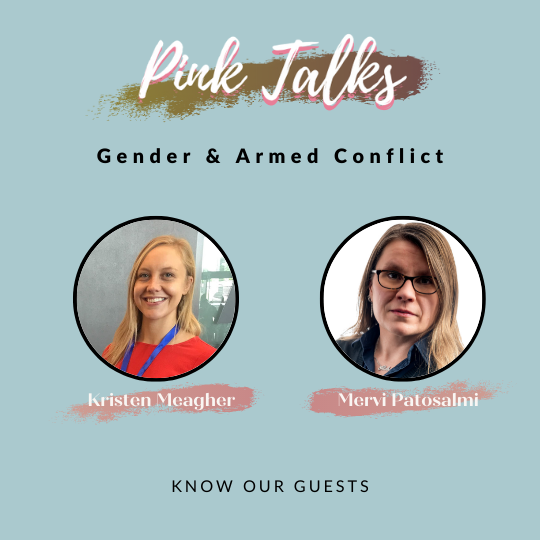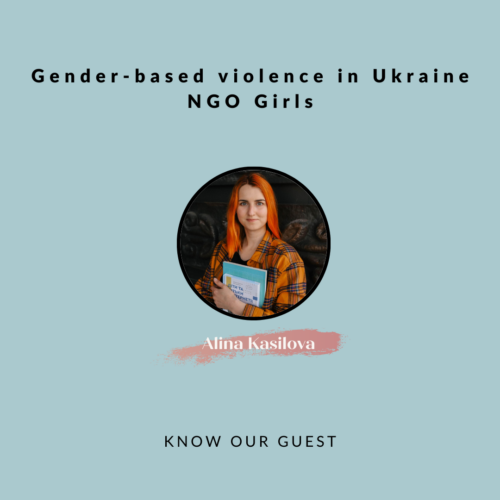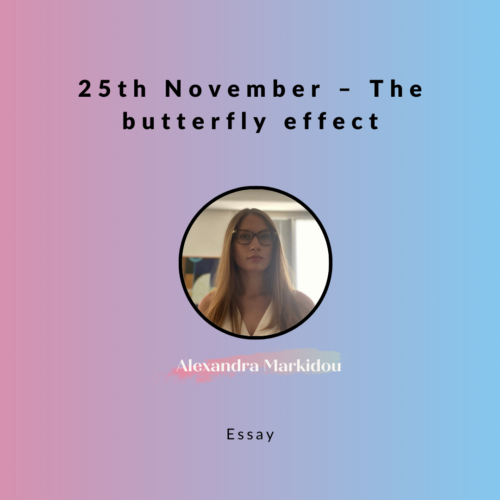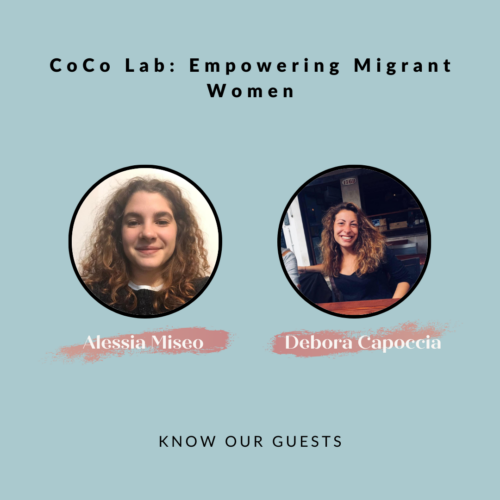October comes up with a new episode of Pink Talks that surfaces the gender impacts of armed conflict. The Gender and Armed Conflict episode offers a context to analyze the distinct ways in which women and men are affected by armed conflicts. Whether we examine the forced recruitment and arbitrary detentions or we take a look at the gender-based violence and access to health, food, and education, armed conflict represents a violation of human rights.
The co-hosts, Margarida Martins and Leah Chaney, together with the two guests, Kristen Meagher and Mervi Patosalmi, advanced some answers to the war’s effects on gender roles and its additional layers on an already patriarchal system.
Kristen Meagher works at King’s College London in a hybrid role as a Programme Manager and Research Associate within the Centre for Conflict and Health Research. She currently manages the Research for Health Systems Strengthening in northwest Syria (R4HSSS) programme, co-leads the Women Leaders in Health and Conflict initiative, and previously managed the Research for Health in Conflict in the Middle East and North Africa. Kristen is also a Ph.D. student at King’s, as part of the R4HSSS programme in which she is exploring the role of women leadership in health systems in northwest Syria. Her research interests currently focus on gender and health systems in conflict and forced displacement.
Mervi Patosalmi works as Gender Advisor at the Council of Europe Office in Ukraine and is responsible for advising the Council of Europe on cooperation work in the Eastern Partnership countries. Her expertise includes gender mainstreaming and advancing gender equality in various contexts, especially regarding human rights, democracy, and the rule of law. Previously, she has worked among others in the Caucasus and East Africa and holds a Ph.D. in Gender Studies from the University of Helsinki, Finland.
The main directions that led the conversation were power relations, health systems in wartime, the Council of Europe, rule of law, and media representation. One of the most interesting perspectives on armed conflict is the use of war as a means to challenge patriarchal structures and to change and create stronger systems. Kristen Meagher’s answer is overturning our conflict perception toward a more positive redefining. She affirms that these contexts could provide opportunities to collaborate, support, and create new spaces for women’s leadership. One example is Syria, where gender inequality has not represented a point of discussion prior to the conflict, but the conflict has brought to the full front the need to address human rights and access to essential services. In this sense, conflict settings are disruptive. Mervi Patosalmi adds that a conflict can both enforce and disrupt gender roles. On the one hand, it fixes the traditional roles of the fighter and the carer role, and on the other hand, the UN Women’s desk research on Ukraine shows that women are challenging these cemented roles. It is important to acknowledge that “the more gender equal the society is, also the resilience of society in conflict is stronger”, points out Mervi Patosalmi. Both guests agree that context and specific dynamics are necessary for discussing war. One is the Ukrainian war’s context, and another way is manifesting in Syria, Yemen, and Afghanistan.
News coverage and media representation are other key points in armed conflict settings. Media and social media can support women’s narratives. It is the time when Ukrainian women’s resistance in the face of Russian soldiers gets on screen, the time when we see more of the Northern India women’s protests, and that content questions the historical description of war.
Asked to give some key takeaways, the guests feed our minds with important statements to reflect on. Kristen Meagher stresses that framing women as vital contributors and decision-makers in conflict settings in all systems is essential for gender equality. Furthermore, we need to continue discussing women’s narratives in all of their different contexts, sharing lessons, and learning from one another. In one word, communication. Mervi Patosalmi highlights the value of gender equality in building democracy, as well as for human rights and rule of law. The countries with the highest rank in gender equality have also the highest rank in stability and safety and the lowest rank in corruption. Moreover, meaningful representation and empowerment of women and girls play a major role in respecting human rights and strengthening peace.
Do we listen when women and girls are speaking, when women organizations are speaking?
Show resources

Kristen works at King’s College London in a hybrid role as a Programme Manager and Research Associate within the Centre for Conflict and Health Research . She currently manages the Research for Health Systems Strengthening in north west Syria (R4HSSS) programme, co-leads the Women Leaders in Health and Conflict initiative, and previously managed Research for Health in Conflict in the Middle East and North Africa. Kristen is also a PhD student at King’s, as part of the R4HSSS programme in which she is exploring the role of women’s leadership in health systems in north west Syria. Her research interests currently focus on gender and health systems in conflict, and forced displacement.
Prior to working at King’s, Kristen has worked with the New Zealand government, the International Organisation for Migration, and NGOs in Australia managing projects and undertaking research primarily focusing on refugee resettlement. Kristen obtained a Masters degree in International Law and Politics from the University of Canterbury, New Zealand. Kristen also undertakes country of origin information research for global organisations supporting asylum seekers.
Mervi Patosalmi works as Gender Advisor at the Council of Europe Office in Ukraine and is responsible for advising the Council of Europe co-operation work in the Eastern Partnership countries. Her expertise include gender mainstreaming and advancing gender equality in various contexts, especially in regard to human rights, democracy and rule of law. Previously, she has worked among others in the Caucasus and East Africa and holds a PhD in Gender Studies from the University of Helsinki, Finland.
UNICEF’s emergency response in Ukraine



